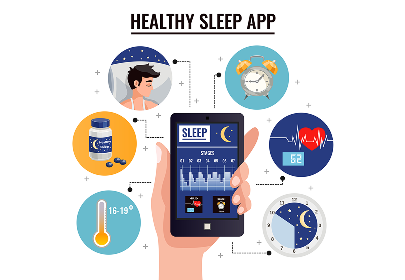Posted On March 4, 2025
How Can AI-Driven RCM Solutions Prevent Revenue Leakages in Hospitals
Revenue leakage in hospitals refers to the loss of potential income due to errors, inefficiencies, or overlooked billing opportunities. It often arises from inaccurate patient data, coding mistakes, or delayed claims processing. These issues can result in underpayments, missed charges, or even claim denials. Over time, these small gaps can lead to substantial financial losses, making it vital for hospitals to identify and address revenue leakages promptly.
Why Do Hospitals Lose Revenue? Common Gaps in Billing and Payments
Hospitals often face revenue loss due to several reasons:
- Data Entry Errors: Inaccurate recording of patient information and services rendered can lead to incorrect billing.
- Undercharging: Sometimes, hospitals fail to capture all billable services provided during patient care.
- Delayed Claims: Late submission of claims can result in denied payments or reduced reimbursements.
- Coding Mistakes: Misclassification of procedures or diagnoses can result in lower payments.
- Lack of Follow-ups: Inadequate tracking of unpaid claims can cause hospitals to forfeit revenue.
These gaps highlight the need for a robust system that can accurately manage hospital revenue cycles.
What Are AI-Driven RCM Solutions? A Simple Explanation
AI-driven Revenue Cycle Management (RCM) solutions use artificial intelligence and automation to streamline and improve the financial processes of hospitals. These systems analyse large amounts of data, detect patterns, and identify potential errors or inefficiencies. Unlike traditional methods, AI-powered RCM tools can predict issues before they occur, enabling hospitals to prevent revenue leakages and enhance cash flow.
How Can AI Help Detect Revenue Leakages Before They Happen?
AI-driven systems proactively monitor every stage of the revenue cycle. They analyse patient records, billing codes, and claim submissions to identify irregularities. Here are some ways AI helps detect revenue leakages:
- Real-time Data Analysis: AI continuously scans financial data, ensuring any discrepancies are flagged instantly.
- Pattern Recognition: Machine learning algorithms identify patterns of common errors, helping prevent recurring mistakes.
- Automated Audits: Routine checks powered by AI ensure billing accuracy, reducing the risk of undercharging or overcharging.
- Predictive Insights: AI can forecast potential claim denials, enabling hospitals to rectify issues beforehand.
By identifying errors early, hospitals can safeguard their revenue and maintain financial stability.
Reducing Billing Errors with AI: A Step Towards Better Revenue Control
Billing errors are a primary cause of revenue leakage. AI-driven RCM solutions significantly reduce these errors by:
- Automating Data Entry: AI eliminates manual input, reducing the chances of human mistakes.
- Standardising Coding: Automated coding tools ensure accurate classification of procedures and diagnoses.
- Verifying Insurance Details: AI cross-checks insurance information, ensuring eligibility and reducing claim rejections.
- Providing Error Alerts: The system generates alerts for incomplete or incorrect billing information, allowing staff to make corrections swiftly.
These capabilities streamline billing processes, ensuring hospitals capture their rightful revenue without delays.
Faster Claims Processing: How AI Speeds Up Payments for Hospitals
Processing insurance claims can often be a slow and tedious task for hospitals. Delays in this area lead to cash flow issues and can result in revenue leakages. AI-driven Revenue Cycle Management (RCM) solutions can significantly reduce these delays.
With AI-powered systems, claim submissions are automated, reducing human errors and ensuring that all required information is accurate. These tools can also flag potential issues in claims before they are submitted, decreasing the chances of rejection. As a result, hospitals experience faster reimbursements, improving their financial stability and reducing the risk of lost revenue.
Spotting Missing Charges: Can AI Help Capture Every Service Provided?
One of the common ways hospitals lose revenue is through missed charges. Sometimes, services provided to patients are not accurately recorded or billed. This oversight can lead to significant revenue losses over time.
AI-driven RCM solutions help by cross-checking medical procedures, supplies used, and treatment details against billing records. These systems can detect discrepancies in real-time, ensuring that every service is properly captured and billed. Hospitals can thus maximise their revenue potential by reducing these gaps.
Predicting Payment Delays: How AI Helps Hospitals Stay Ahead
Late payments from insurance providers and patients can severely affect hospital finances. Predicting these delays early allows hospitals to take timely action.
AI tools analyse historical payment patterns and identify factors that may lead to delays. These predictive capabilities help hospitals address potential issues before they escalate. Automated reminders and follow-ups can also be triggered, ensuring that payments are received on time. This proactive approach minimises disruptions in cash flow and prevents revenue leakage.
Cutting Down Manual Work: How Automation Supports Hospital Finances
Managing hospital finances often involves repetitive administrative tasks. Manual data entry, claims processing, and payment tracking can be time-consuming and prone to mistakes.
AI-driven RCM solutions automate these routine processes, reducing the workload on staff. Automation ensures that billing is accurate, claims are submitted promptly, and payments are monitored efficiently. By cutting down manual work, hospitals can lower administrative costs while safeguarding their revenue.
The Future of Hospital Revenue Management: Why AI is the Way Forward
As healthcare demands grow, hospitals need efficient systems to manage their revenue. Traditional methods are often slow and error-prone, leading to financial losses.
AI-driven RCM solutions offer a smarter approach by streamlining billing processes, minimising errors, and enhancing payment tracking. These systems empower hospitals to maintain steady cash flow and reduce revenue leakages. Investing in AI technology is not just a step towards financial security but also a means to provide better patient care.
Conclusion
Revenue leakage remains a pressing concern for hospitals, impacting their financial health and operational efficiency. AI-driven RCM solutions offer a transformative approach to tackling this issue by automating processes, detecting errors, and enhancing billing accuracy. Hospitals adopting AI-powered systems can ensure robust revenue management while focusing on delivering quality patient care.
For healthcare organisations seeking innovative solutions to optimise their revenue cycle, partnering with trusted technology providers such as smartdatainc.com can be a strategic step towards long-term financial success.








